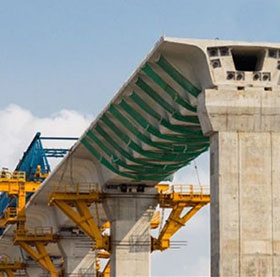- Argentina(Español)
- Österreich (Deutsch)
- Belgium(English)
- Belgique (Français)
- België(Nederlands)
- Brasil (Português)
- Canada(English)
- Canada (Français)
- Chile(Español)
- China(Chinese)
- Colombia(Español)
- Czechia(Czech)
- Denmark(Danish)
- República dominicana(Español)
- France (Français)
- Deutschland (Deutsch)
- Hungary(Hungarian)
- Italia(Italiano)
- 日本(日本語)
- Kazakhstan(Kazakh)
- Kazakhstan(Russian)
- Luxembourg(Français)
- Mexico(Español)
- Maroc(Français)
- Nederland(Nederlands)
- Panamá(Español)
- Perú(Español)
- Poland(Polish)
- Portugal (Português)
- Puerto Rico(Español)
- Romania(Romanian)
- Slovakia(Slovak)
- España (Español)
- Taiwan(Chinese)
- Tunisie(Français)
- Turkey(Turkish)
- Ukraine(Ukrainian)
- United States(English)
- Uruguay(Español)
- Venezuela(Español)
Risk Outlook February 2020-Mexico

President Andrés Manuel López Obrador (AMLO) is shifting Mexico’s energy policy and pursuing state-centric policies. In 2020, new regulations will reportedly increase transmission costs for renewable energy firms, creating a more challenging operating environment for the energy industry.
Security Environment
Energy firms face a serious risk of attacks on infrastructure, and fuel theft is common. However, in the last 12 months the government has initiated a fuel-theft crackdown, fixing 13,600 illegal taps on pipelines and moving more oil by armored vehicles.
This has reduced the amount of stolen gasoline, diesel, and liquefied petroleum gas (LPG) to 1.8 million barrels in 2019, down from over 20.4 million barrels in 2018.
Drug cartels pose a risk of property damage, particularly in Estado de Mexico, Guerrero, Michoacán, and Tamaulipas states.
Cartels are increasingly looking to diversify revenues away from drug trafficking, leading to more extortion cases. Extortion incidents increased by 37% year-over-year during January-May 2019, reaching 3,526 cases.
Trading Environment
Real GDP contracted by 0.1% year-over-year in the first nine months of 2019, as the Mexican economy experienced a technical recession.
Uncertainty over policy direction continues to hamper Mexico’s attractiveness as an investment destination, and will contribute to weak economic growth of 0.6% year-over-year in 2020.
Mexico will also be negatively impacted by slower growth in the US.
The US accounts for approximately 75% of all Mexican exports, but US growth is forecast to slow to 2% in 2020, down from 2.8% in 2019 and 2.9% in 2018.
The government outlined only minor spending increases in the 2020 budget, highlighting the limited fiscal space available to the administration. However, over the long term, Mexico’s fiscal deficit will likely widen if weak growth persists and AMLO is pressured into enacting a nationalist agenda that prioritizes government spending to stimulate economic activity.
The fiscal deficit is forecast to increase to 2.5% of GDP in 2020, up from 2.3% in 2019.
AMLO must balance fiscal prudence with budgetary support for Mexico’s state-owned enterprises. This has transferred some credit risk to the government.
Mexico’s total government debt-to-GDP ratio will increase over the course of AMLO’s presidential term from 47.4% in 2019, to 52.6% in 2021. However, adequate foreign reserves mean the economy is relatively buffered against external shocks.
Foreign reserves are forecast at US$182.7 billion in 2020, providing for 4.4 months of import cover.
Investment Environment
 Pricing Outlook
Pricing Outlook
0.5%-0.75% p.a
CEND Risk Pricing Range
0.5%-0.75% p.a
Sovereign Credit Risk Pricing Range
AMLO wants to strengthen state entities’ market role, following a period of energy market liberalization under his predecessor.
In December 2019, Mexico’s state-owned power utility, Comisión Federal de Electricidad (CFE) announced planned regulatory changes that are likely to limit private-sector participation in the energy market.
The plans are set to increase transmission costs for private-sector generators, particularly in the renewables sector, and give priority to CFE when electricity is dispatched into the national grid.
Independent generators that supply electricity to private clients under contracts agreed before Mexico’s liberalization of the energy market in 2013 will have to pay CFE a transmission fee to use its network.
The regulatory changes will impact companies that generate approximately 12% of the country’s energy supply.
They are also likely to increase the risk of contract termination between generators and private power clients.
Given the current government’s policy shift toward energy nationalism, the operating environment for private renewable companies is likely to become more challenging in the next year.
Rating Outlook: Country Economic Risk; Contractual Agreement Repudiation; Legal and Regulatory Risk.
Key Takeaways
- Uncertainty over policy direction continues to hamper Mexico's attractiveness as an investment destination and this will contribute to weak economic growth of 0.6% year-over-year in 2020.
- President Andrés Manuel López Obrador (AMLO) must balance fiscal prudence with budgetary support for Mexico’s faltering state-owned enterprises.
- AMLO wants to strengthen the market role of state entities, following a period of energy market liberalization under his predecessor.
- In December 2019, Mexico’s state-owned power company Comisión Federal de Electricidad (CFE) announced planned regulatory changes that are likely to limit private-sector participation in the energy market.
- Energy firms face a serious risk of attacks on infrastructure, with fuel theft a common occurrence.
Placeholder for editing the content for: marsh/components/content/rightrailtext
Placeholder for editing the content for: marsh/components/content/rightrailtext
Placeholder for editing the content for: marsh/components/content/rightrailtext
Placeholder for editing the content for: marsh/components/content/rightrailtext
Placeholder for editing the content for: marsh/components/content/rightrailtext
Placeholder for editing the content for: marsh/components/content/rightrailtext
Related Resources
- Risk in Context Podcast: Shifting Political and Credit Risks
- Risk in Context Podcast: Shifting Political and Credit Risks
- Oil Price Dynamics: Economic Risks in the Middle East and Africa
- Political Risk Map 2020
- Political Risk Map 2020: Mid-Year Update for Middle East and Africa
Placeholder for editing the content for: marsh/components/content/rightrailtext